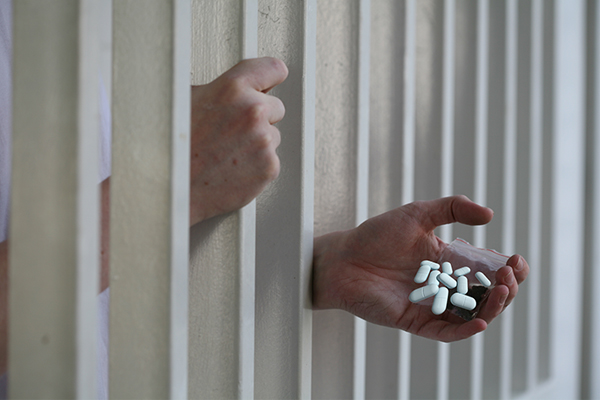Guilford County is hitting hard against one of the county’s biggest problems – opioid addiction – and a new $100,000 federal and state grant will allow the Guilford County Division of Public Health and the University of North Carolina at Greensboro (UNCG) to take that battle into Guilford County’s jails.
The Guilford County Board of Commissioners is set to approve the distribution of the grant at its Thursday, Nov. 1 meeting, and, soon after, the inmate population will get new help in the fight against opioid addiction.
Guilford County Health Director Merle Green said that county health officials will work with UNCG faculty and students in social science fields to help address opioid addiction among inmates – a population where substance abuse is a widespread problem.
Green said an added bonus is that UNCG students will get some hands-on learning in the field of substance abuse treatment.
“We’ll rely on a clinically oriented, evidence-based plan,” she said. “We’re coordinating the effort with the Sheriff’s Department.”
The jail can be a revolving door for inmates with drug problems but the new program is meant end that cycle.
“It will be designed to keep them from getting back on that road,” Green said.
According to Green, another part of the new effort will be aimed at drug users outside of the jails. County departments and UNCG will form “rapid response teams” that provide quick help for addicts.
“A patient of [Emergency Medical Services] who overdoses will, within a couple of days, get on a path of education and prevention,” she said.
Guilford County Sheriff BJ Barnes said drug addiction is big problem among the inmate population and said jail officials have been trying to address it for years.
“We have Narcotics Anonymous and Alcoholics Anonymous programs,” he said, adding that incoming inmates have an interview and evaluation that includes drug use assessment.
The sheriff said the new joint effort will study the best methods for getting them off drugs. He said a study in recent years of the inmate population showed that 85 percent had some issues with alcohol or drugs. He said he is not sure what the number is at the current time.
“But it’s a lot,” he said.
The county’s health division, together with Guilford County Emergency Services, has been working together recently with other groups to a broad ranging effort known as GCSTOP (Guilford County Solution To the Opioid Problem) – a program housed at UNCG that’s meant to help individuals who overdose and those who are at the risk of overdose.

